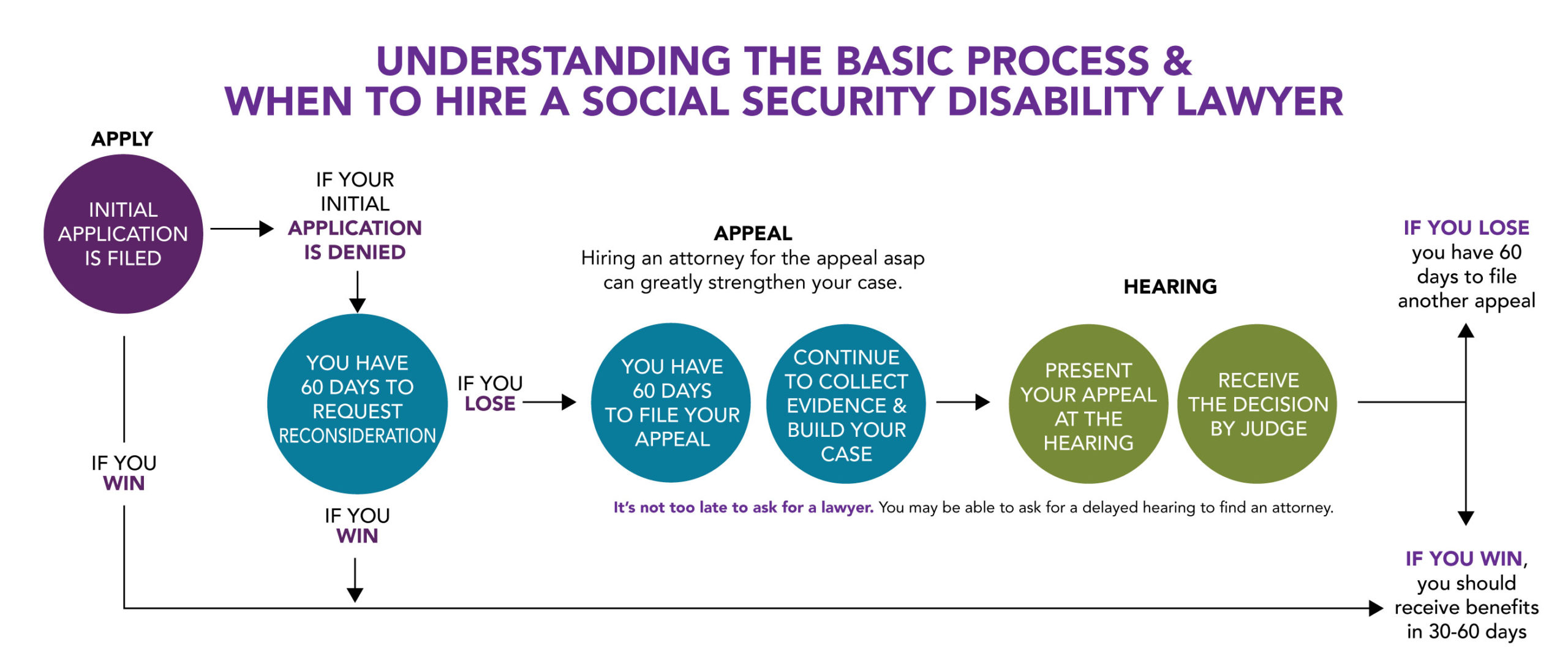Social Security Disability/Supplemental Security Income
Our attorneys can help you get the SSI and SSD/DIB benefits you deserve, even if your claim has been denied.
Warren & Schairbaum has been advocating for people seeking disability benefits since 1998. We know the ins and outs of the system, and we understand how these benefits can improve the lives of our clients. Whether you’re just starting to apply or need to appeal a denial, contact us. We work for your best interests with knowledge and compassion.
You’ll get the help that only a strong legal team can provide:
- Reviewing social security files
- Gathering and analyzing evidence
- Deciding the best course to take
- Writing briefs for hearings and appeals
- Presenting your best case to the Social Security Administration
What to Expect During the Application Process
Clients often ask, “How long does it take to apply for and get my disability benefits?” Unfortunately, there is no easy answer.
We will never needlessly delay the process and will do everything in our power to get your benefits as quickly as possible. But most of the procedures are beyond our control. The administrative process takes time (and a good deal of patience). Each person’s claim has unique medical facts and circumstances. For some applicants, the process requires more time than for others.
Fortunately, you can hire an attorney at any point in the process — even if you’ve been denied benefits. An experienced attorney may be able to help you appeal the decision.
The typical stages of the disability determination process include: 1) Applying 2) If you win, you should receive benefits in 30-60 days. If you are denied, you have 60 days to request reconsideration. 3) If your reconsideration is denied, you have 60 days to file for appeal while you collect evidence and build your case. 4) Your case will be heard by a judge at a hearing. If you win, you will receive benefits. If you lose, you have 60 days to file another appeal.

Should You Apply for Disability Benefits?
We all grew up believing that an honest day’s work is the way to succeed financially, but work is simply not possible for everyone. Disabilities can limit many areas of life, including the ability to maintain a full time job. Social Security provides two programs for individuals who are disabled: Supplemental Security Income (SSI) and Disability Insurance Benefit (DIB or commonly known as SSD). These benefits are available to eligible individuals who can’t earn an income by working.
STEP ONE:
Find out if you are eligible for Disability Benefits.
Call your local social security office to determine if you meet the eligibility requirements.
Once eligibility is established (either financial eligibility for SSI or work credits for DIB), you must prove that you meet the definition of “disabled” as defined by Social Security. The claim process can be complicated and lengthy, and not everyone who applies will qualify..
If you are eligible, we recommend the following:
You SHOULD apply if:
- You have a severe mental or physical condition
- This condition is expected to last for a full year or longer, impacting your finances and quality of life
- This condition affects your ability to hold a job and make a steady income
You should NOT apply if:
- Your doctor does not believe your condition is severe
- The condition is expected to be temporary and last less than one year
- You are able to work in order to earn a sufficient income
- You haven’t worked enough to be eligible for benefits
- Your work history or current benefits make you ineligible
In either case, we recommend contacting an attorney with the experience to secure the benefits you need.
Get the Disability Benefits You Deserve
We will only accept your case if we expect to deliver the results you’re looking for. We know the law and the system well enough to give a reliable assessment of your likelihood of success. If we can’t succeed with your case, we won’t give false hope and drag you through a frustrating process.
We promise to be completely up front about the strength of your case. If we accept your case, it’s because we believe that you have a right to the Social Security Disability or SSI benefits you’re seeking.
We’re also available for one-time consultations on possible claims or to respond to a Continuing Disability Review.
Disability Insurance Benefits are often referred to in different ways: SSD, SSDI, SSDIB, DIB, or just “Social Security.” We prefer to use “DIB,” because it’s more precise.
What Is Social Security Disability Insurance (SSD or DIB)?
These benefits are part of the Social Security Disability Act Title II (commonly called “Title 2”) which includes other benefits related to your earnings.
Once the Social Security Administration (SSA) decides that you qualify, you can be paid benefits retroactively starting as much as one full year before the month that you applied, depending on when your inability to work began.
Medicare comes with these benefits, but it doesn’t begin until 24 months after your first Disability Insurance Benefit month.
What Is Supplemental Security Income (SSI)?
SSI is a welfare benefit for disabled persons whose disability benefits are less than the maximum. If this is the case, you may qualify for SSI. If you have worked only a little, or at low-wage jobs, then SSI will supplement your Disability Insurance Benefit.
The rules and regulations about SSI benefits can be confusing, and many people need a trusted expert they can rely on to fight for their disability benefits.

I felt very comfortable with Elizabeth and her staff. They never made me feel that I had a stupid question. They always took the time to make me feel that I understood what was happening in my case.
